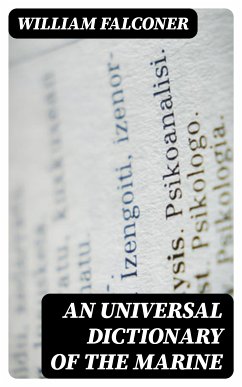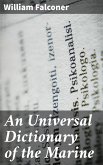In "An Universal Dictionary of the Marine," William Falconer presents a comprehensive lexicon of maritime terminology that serves both as a practical resource for seafarers and as an insightful exploration of nautical culture. Written in an accessible yet erudite style, the dictionary encompasses terms spanning naval architecture, navigation, and maritime natural history, reflecting the Enlightenment's fascination with empirical knowledge and exploration. Falconer's work is notable for its clarity and organization, allowing readers to navigate the intricate world of maritime language with ease, and it stands as a significant contribution to the literature of the sea during the 18th century. William Falconer, also a poet and naval officer, drew on his personal experiences at sea to inform his writing. His understanding of the everyday life of mariners and the complexities of navigation imbues the dictionary with authenticity and depth, marking it as not only a reference work but also a reflection of the maritime ethos of his time. Falconer's dual perspective as both a practitioner and a scholar enriches the content, making it an essential text for those interested in marine literature. "An Universal Dictionary of the Marine" is highly recommended for maritime historians, sailors, and anyone intrigued by the language of the sea. Falconer's meticulous compilation of terms serves as an invaluable tool for understanding the profound relationship between humanity and the ocean, making it indispensable for both academic study and practical navigation.
Dieser Download kann aus rechtlichen Gründen nur mit Rechnungsadresse in A, B, BG, CY, CZ, D, DK, EW, E, FIN, F, GR, H, IRL, I, LT, L, LR, M, NL, PL, P, R, S, SLO, SK ausgeliefert werden.









